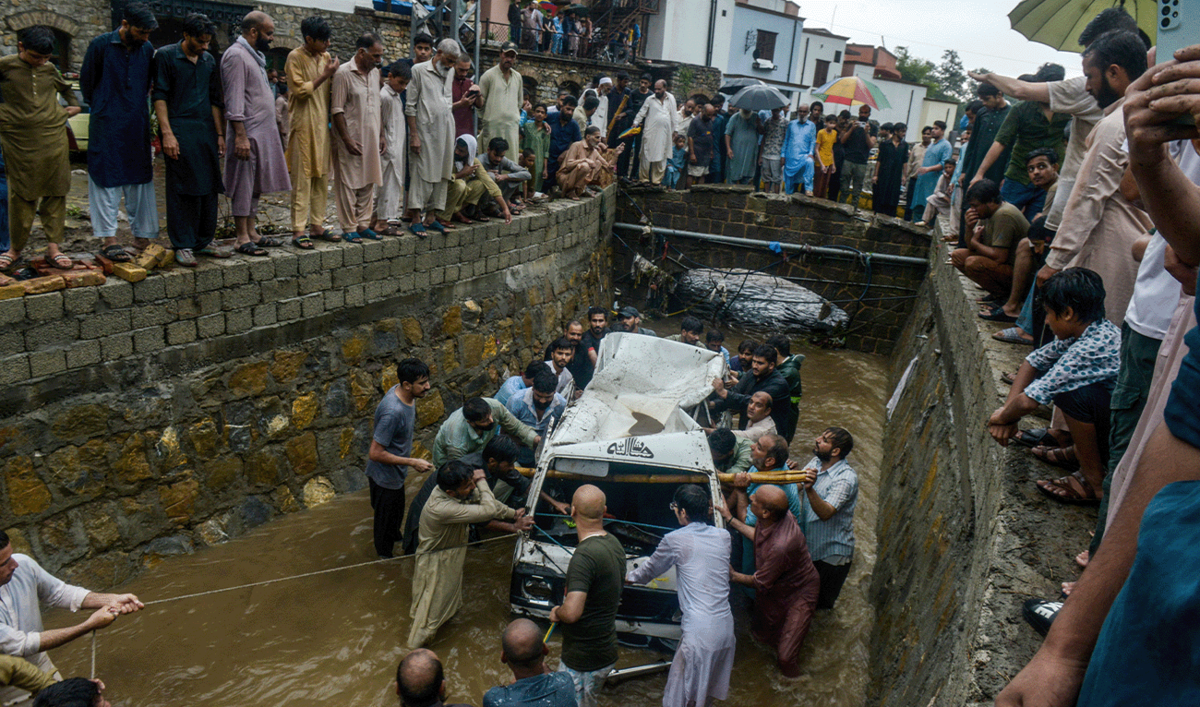ISLAMABAD: Pakistani legislators had on Wednesday cast their votes for 37 seats in the upper house of parliament in what has been a hotly contested fight between the government and an opposition alliance.
The official deadline to close the polls was 5 p.m. and election commission officials are going to start counting the votes in the National Assembly and provincial assemblies of Sindh, Balochistan and Khyber Pakhtunkhwa. Eleven senators from Punjab have already been declared unopposed winners.
Prime Minister Imran Khan, leader of the opposition in the National Assembly Shehbaz Sharif, former president Asif Ali Zardari and other lawmakers cast their votes in Islamabad. The ruling party, Pakistan Tehreek-e-Insaf (PTI), and an opposition alliance, are waging a tough competition to get their candidates Hafeez Sheikh and Yousuf Raza Gilani elected respectively, to win a majority in the National Assembly.
The 342-member lower house of the parliament is the electoral college for the two Islamabad seats where it currently has 341 members, with one vacant seat.
In the National Assembly, 340 out of 341 members had cast their vote by Wednesday afternoon, while a single member of the Jamat-e-Islami in the house, Maulana Akbar Chitrali, did not show up to the venue.
Pakistan Peoples Party’s chairman Zardari was issued a second ballot to vote after he wasted the first one by mistake. PPTI lawmaker Shehryar Afridi also sought permission from the election commission to recast his vote as he had wasted his ballot by putting his signature on the ballot papers instead of numbers. The commission has so far not issued him a new ballot.
Voting started at 9am this morning for an election that has been marred by accusations of corrupt practices and a controversy over the method of voting.
In Pakistan, a senator serves a term of six years, barring resignation, disqualification, or other extraordinary circumstances. Half of the senators are elected at one time, and the other half three years later.
This year, 52 senators elected in 2015 are set to retire; the other 52 will retire in 2024. However, elections are being held only for 48 seats after Pakistan’s northwestern Federally Administered Tribal Areas (FATA) were merged with the Khyber Pakhtunkhwa province in 2018. The Senate thus now comprises 100 lawmakers: 23 each from all the provinces and four from Islamabad. The remaining four senators from FATA will retire in 2024.
The Pakistani Supreme Court ruled this Monday that upcoming senate elections would continue to be held through a secret ballot as per the constitution but directed the election commission to use technology to check against corrupt practices in the polls.
The court’s 4:1 verdict came in response to a presidential reference filed on December 23, 2020 seeking the court’s opinion on whether voting in senate elections could be held through an open ballot.
The government of PM Khan has argued that open balloting would introduce transparency into a voting process that has long been plagued by irregularities, with national and provincial lawmakers accused of selling their votes.
Leaders of an 11-party opposition alliance, the Pakistan Democratic Movement (PDM), have opposed the government’s move to try to hold senate elections through an open ballot, and one of the major parties in the alliance, the Jamiat-e-Ulema Islam, had filed a petition in the Supreme Court against the Election Amendment Ordinance 2021.
On Tuesday, the election commission said senate elections this year would be held as ‘per past practices,’ saying it was setting up a monitoring mechanism to identify corrupt practices in the elections.
On Tuesday night, a video surfaced showing the son of former prime minister Yousuf Raza Gilani, the joint opposition’s most prominent candidate for the polls, explaining to lawmakers how they can waste their vote during the election.
The government has since demanded the election commission declare Gilani ineligible and has filed a reference with the commission seeking his disqualification for being involved in “corrupt practices.”
“Every member will vote according to their conscience,” Shehbaz Sharif, the current leader of the opposition in the National Assembly, told media on his way to cast his vote. “The supreme court has said that the election commission has to ensure transparency which they will, that is the hope.”
Sharif is among a number of detained leaders of opposition parties who were brought to the capital on Tuesday to cast their votes in the senate elections. These include Khawaja Mohammad Asif of the Pakistan Muslim League-Nawaz, Pakistan Peoples Party legislator from Sindh, Syed Khursheed Ahmed Shah, and Ali Wazir, a lawmaker from South Waziristan.
When asked if his PMLN party would be successful in the election, Sharif said he was not a “fortune teller” but “the government’s worst ever performance was in front of the whole world to see.”


















